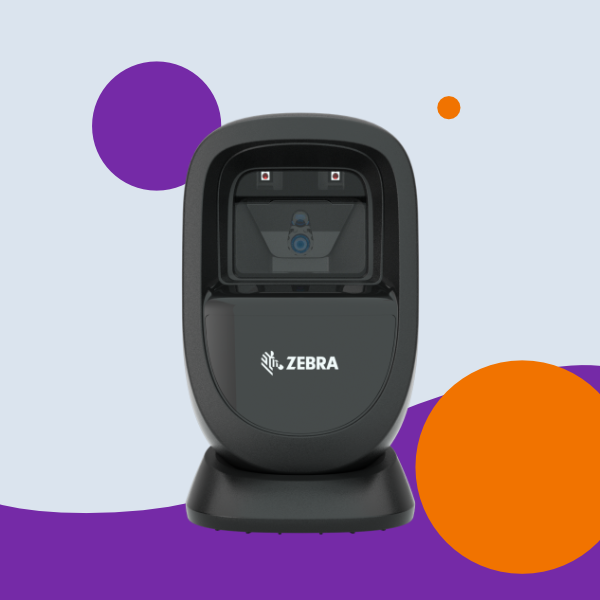Why Barcode Scanners Are Important for Modern Retail and Warehousing
In the swiftly evolving landscape of retail and warehousing, the integration of barcode scanners has actually become a pivotal aspect in improving procedures and enhancing precision. As businesses strive for competitive advantage, recognizing the diverse advantages of barcode innovation discloses its vital role in optimizing source allotment and promoting robust vendor partnerships.
Advantages of Barcode Scanners
Barcode scanners use countless advantages that dramatically enhance functional efficiency in retail and warehousing atmospheres. The automation of information entry refines removes the errors generally connected with hand-operated input, resulting in boosted precision in inventory tracking and sales purchases. With the ability to swiftly scan items, businesses can expedite check out times, enhancing the client experience and decreasing wait times.
Additionally, barcode scanners help with real-time information collection, permitting instant updates to stock levels and sales documents. This capability allows businesses to react without delay to changes in need and maximize supply degrees, reducing excess supply and lessening stockouts. Furthermore, the integration of barcode scanners with stock administration systems enhances processes such as order fulfillment and item returns, further improving functional effectiveness.
Cost savings are another critical benefit. By reducing labor expenses linked with hand-operated stock management and lessening mistakes that can bring about financial losses, barcode scanners add to total profitability. Their ease of usage and mobility make them obtainable for team training, ensuring that workers can quickly become efficient in their procedure. On the whole, the implementation of barcode scanners is a critical investment that generates substantial returns in efficiency and functional excellence.
Enhancing Inventory Management
Effective stock monitoring is pivotal for preserving functional efficiency in retail and warehousing settings. Barcode scanners play a critical function in this process by improving the tracking of stock degrees, item locations, and stock movements. By automating information capture, these devices minimize human error, bring about more exact supply records.
Using barcode scanners allows real-time exposure right into stock amounts, allowing services to make enlightened decisions regarding reordering and stock turning. This immediacy helps protect against overstocking or stockouts, both of which can negatively affect client satisfaction and revenue margins.
Furthermore, barcode scanning helps with effective stock audits. With quick scanning abilities, staff can perform supply checks promptly, guaranteeing that inconsistencies are determined and fixed quickly. Enhanced inventory precision not just supports operational performance but likewise strengthens relationships with distributors, as exact data can result in much better settlement terms and boosted order satisfaction.

Improving Checkout Efficiency
As customers increasingly require quicker and extra effective buying experiences, enhancing checkout procedures has actually come to be a leading concern for stores. Carrying out barcode scanners plays a pivotal function in this undertaking, significantly simplifying the transaction process. By allowing cashiers to scan products swiftly, barcode technology lowers the time spent on each sale, hence reducing overall wait times for clients.
Moreover, barcode scanners promote the exact identification of products, reducing the possibility for mispricing and ensuring that consumers are billed correctly. This performance look here not only enhances customer complete satisfaction however likewise boosts the store's functional performance. With the capacity to refine multiple things in fast succession, merchants can deal with high volumes of deals during optimal shopping hours without compromising service top quality.
Additionally, integrating barcode scanners official website with point-of-sale systems enables real-time stock updates, offering valuable insights into stock levels. This immediacy allows merchants to handle stock more effectively, making sure that prominent products continue to be in supply and lowering the probability of shed sales. On the whole, the fostering of barcode scanning modern technology is necessary for enhancing check out efficiency, eventually resulting in boosted client experiences and raised sales for retailers.
Lowering Human Mistake
In retail and warehousing environments, the application of scanning modern technology substantially reduces human mistake during deals. Standard hand-operated access of product details is prone to mistakes, including wrong pricing, misidentified products, and data access mistakes. barcodes scanners. Barcode scanners improve this process by automating the capture of thing data, ensuring precision and uniformity
By making use of barcode scanners, staff members can swiftly check things as opposed to manually inputting details. This automation decreases the risk of human oversight, supplying a more reliable purchase procedure. Researches reveal that errors in stock management can result in expensive discrepancies, affecting stock levels and client contentment. Barcode scanning mitigates these threats by enhancing the accuracy of stock counts and sales documents.
Additionally, barcode scanners enhance accountability within the workforce. Overall, the fostering of barcode modern technology is a crucial action toward achieving functional excellence in retail and warehousing settings.
Future Patterns in Barcode Modern Technology
The development of barcode modern technology is positioned to change retail and warehousing operations in the coming years, driven by innovations in automation, data analytics, and mobile integration. As markets progressively adopt Web of Things (IoT) systems, barcode scanning will come to be important to real-time inventory administration and supply chain optimization. Boosted information analytics abilities will make it possible for businesses to harness scanned information for predictive analytics, improving demand forecasting and stock turnover.

Additionally, the assimilation of fabricated intelligence with barcode modern technology assures to enhance processes through clever acknowledgment and mistake discovery. As maker discovering algorithms examine checked data, they can offer insights that assist prevent stockouts and overstock circumstances.

Final Thought
Finally, barcode scanners play a critical role in modern retail and warehousing by improving stock administration, improving check out performance, and significantly decreasing human mistake. The assimilation of barcode innovation not only streamlines operations however additionally fosters much better vendor relationships and optimizes source allocation. As innovation remains to progress, the future of barcode scanning assures additional advancements that will drive functional performance and profitability in progressively open markets.